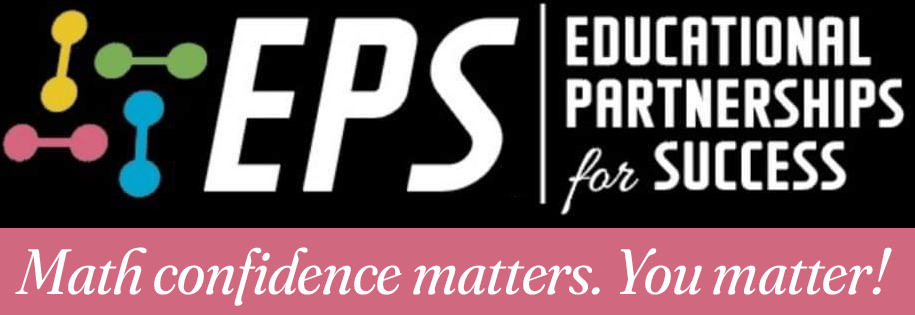Education & Advising
- Center on the Developing Child https://developingchild.harvard.edu/
- College & Career Readiness https://www.air.org/topic/education/college-and-career-readiness
- EAB Research & Insights https://eab.com/research-and-insights/
- Early Childhood & Child Development https://www.air.org/topic/education/early-childhood-and-child-development
- Equity in Education https://www.air.org/topic/education/equity-education
- National Academic Advising Association (NACADA) Center for Research https://nacada.ksu.edu/Resources/Research-Center.aspx
- NPR (National Public Radio) News & Analysis https://www.npr.org/
- On Course Learning and Instructional Principles https://oncourseworkshop.com/best-practices/
- PA Department of Education https://www.education.pa.gov
- PBS (Public Broadcasting Service) https://www.pbs.org/
- Trending and ongoing education issues on Learning Liftoff https://www.learningliftoff.com/category/education
- US Department of Education https://www.ed.gov https://www.ed.gov/stem
Math & Math Anxiety
- American Institutes for Research https://www.air.org/topic/education/mathematics-education
- Calculated Avoidance: Math Anxiety https://advances.sciencemag.org/content/5/11/eaay1062
- Conquering Math Anxiety https://www.scholastic.com/teachers/articles/teaching-content/conquering-math-anxiety/
- EdReports – Reviews of K-12 Instructional Materials https://www.edreports.org/reports/?s=math
- Math Anxiety in Students: Causes & Prevention http://www.edimprovement.org/2019/10/math-anxiety-in-students-causes-and-prevention/
- National Center for Biotechnology Information – Spotlight on Math Anxiety https://www.ncbi.nlm.nih.gov/pmc/articles/PMC6087017/
- National Council of Teachers of Mathematics https://www.nctm.org/
Metacognition
- A Stanford Researcher’s 15-Minute Study Hack https://qz.com/978273/a-stanford-professors-15-minute-study-hack-improves-test-grades-by-a-third-of-a-grade/
- How to Get the Most Out of Studying: Beliefs that Make you Fail or Succeed https://www.youtube.com/watch?app=desktop&v=RH95h36NChI&ab_channel=SamfordUniversity
- Learning How to Learn https://www.coursera.org/learn/learning-how-to-learn
- Metacognition & Student Learning https://www.chronicle.com/article/metacognition-and-student-learning/
- Metacognition: This is Why Students Are Failing and What You Can Do About It https://medium.com/superintelligence/metacognition-this-is-why-students-are-failing-and-what-you-can-do-about-it-5d5044e495aa
- Metacognitive Processes https://lincs.ed.gov/state-resources/federal-initiatives/teal/guide/metacognitive
- Metacognitive Teaching Strategies https://ciel.viu.ca/teaching-learning-pedagogy/designing-your-course/how-learning-works/ten-metacognitive-teaching-strategies
- Mindset: The New Psychology of Success https://www.amazon.com/exec/obidos/ASIN/0345472322/braipick-20
- Teaching Students to Drive Their Brains http://www.ascd.org/publications/books/117002/chapters/The-Case-for-Teaching-for-and-with-Metacognition.aspx
Science, Technology, Engineering & Math (STEM)
- American Association for the Advancement of Science https://www.aaas.org/programs/project-2061/assessment-resources
- American Institutes for Research https://www.air.org/topic/education/stem
- National Center for Biotechnology Information https://www.ncbi.nlm.nih.gov/home/learn/
- National Council of Teachers of Mathematics (NCTM) Research Briefs https://www.nctm.org/Research-and-Advocacy/research-briefs-and-clips
- National Science Foundation https://www.nsf.gov/
- PA Department of Education STEM Coalition https://www.education.pa.gov/Pages/STEM-Competition.aspx
- STEM Education Coalition http://www.stemedcoalition.org/
- STEMM Equity Achievement (SEA) Change https://seachange.aaas.org
- US Department of Education (STEM & Computer Science) https://www.ed.gov/stem
Also, check out Christina Tondevold’s (a Recovering Traditionalist and Build Math Minds facilitator –see BuildMathMinds.com) suggested questions to ask in evaluating a math resource:
- Is it focused on problem solving or answer getting?
- Do the lessons include C-R-A? (C-R-A stands for Concrete, Representational, and Abstract)
- Do the lessons include the three areas of rigor — conceptual understanding, procedural fluency, and application? All three of these make up a balanced approach to mathematics.
